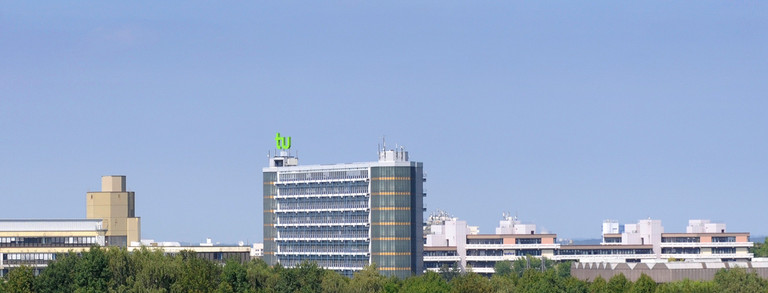DFG Priority Program 2231 Enters Second Funding Phase
- Research
- Top News

In the second funding phase, the DFG is supporting eleven interdisciplinary sub-projects from Germany and Austria with 4.6 million euros. The Institute for Machining Technology (ISF) of TU Dortmund University is involved in three of these projects. The cooperation of all the projects in the priority program is coordinated by Prof. Dirk Biermann, who manages the ISF. In the priority program 2231 FluSimPro, 24 scientists from 21 research institutions from the fields of production engineering, process engineering, fluid mechanics, mechanics, mathematics and numerical analysis are jointly focusing on the study of cooling lubricants. The content focuses on the role cooling lubricants play in numerous production processes. Since the reaction points for fluids in production processes are often difficult to access – meaning complex fluid-structure interactions cannot be observed directly – the program aims to model and simulate these processes and validate them through experimentation. This way, knowledge can be gained, and optimizations can be implemented as a result, for example, through reduced fluid quantities or a more targeted supply.
Building on the successes of the first funding phase
Even in the first two-year basic stage, funded by the DFG from October 2020, 49 scientific articles were published. Not only that, but, in honor of the 19th CIRP conference CMMO 2023 in Karlsruhe, a joint special session with the priority program 2086 was organized by Prof. Volker Schulze from the wbk Institute of Production Science of the Karlsruhe Institute of Technology. This is where the results from the priority programs are presented, with the FluSimPro consortium taking part with ten specialist contributions.
The second phase was launched with a two-day exchange involving a total of 50 academic employees and professors as well as the heads of the program’s three working groups with the main topics of measurement technology, simulation and optimization of production processes. In addition to a review of the results of the first funding phase, the kick-off event also provided an outlook on the second funding phase and allowed for an exchange on the potential for cooperation for the next two years of basic research in the priority program.
Contact for inquiries:





![[Translate to English:] Partner Four hands are holding the green logo of TU Dortmund University](/storages/tu_website/_processed_/1/d/csm_Partner_Nicole_Rechmann_KW_670eba0154.jpg)




![[Translate to English:] Forschung An apparatus with tubes in a laboratory](/storages/tu_website/_processed_/0/c/csm_Forschung_Juergen_Huhn_4fa3153b51.jpg)
![[Translate to English:] Studium Five students are sitting in a lecture hall. They are talking to each other.](/storages/tu_website/_processed_/c/9/csm_Studium_FelixSchmale_dbdbfb0dd7.jpg)






